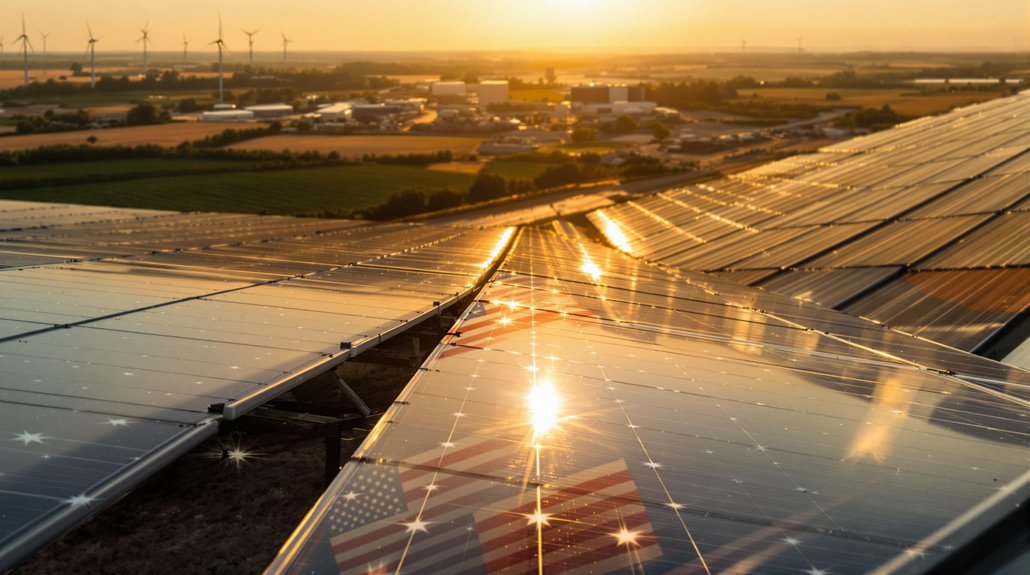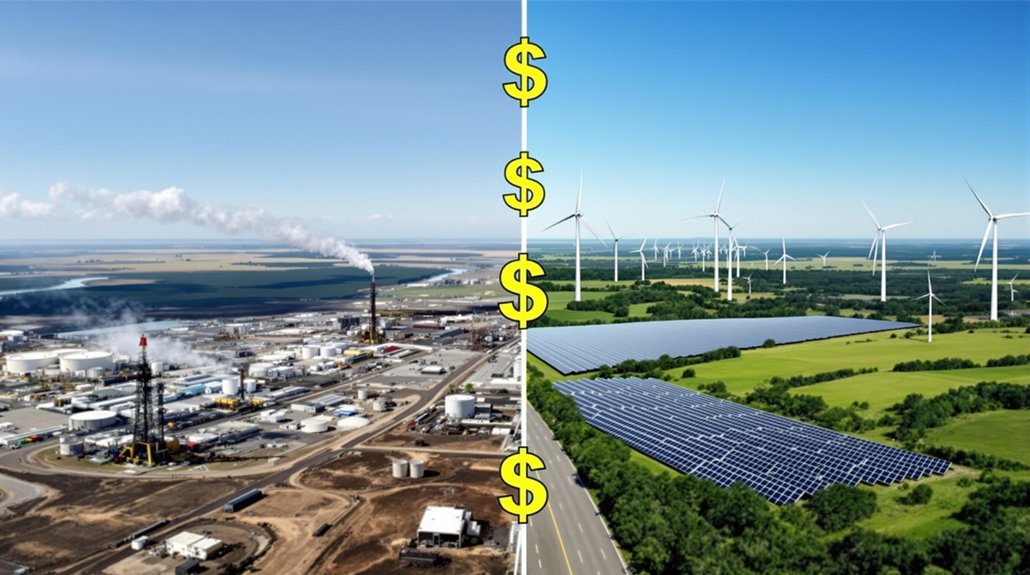Some House Republicans now support clean energy tax credits that benefit their districts. Twenty-one GOP lawmakers recently urged protection of specific provisions like carbon capture and nuclear incentives. These Republicans emphasize job creation and economic growth, noting that 85% of clean energy investments flow to GOP districts. However, they’re careful not to alienate conservative voters who oppose broader climate initiatives. The delicate balancing act reveals deeper divisions within the party.
While many Republicans opposed President Biden’s Inflation Reduction Act when it passed, a growing number are now backing its clean energy tax credits. In a recent letter, 21 House Republicans urged protection of these incentives, highlighting job creation and economic benefits in their districts. This follows a similar letter signed by 18 Republicans in August 2024.
The economic impact of these credits is driving Republican support. By June 2024, the IRA had spurred $278 billion in clean energy investments. About 85% of these investments are flowing to Republican congressional districts, creating jobs in rural areas and boosting manufacturing.
Rep. Andrew Garbarino (R-NY) is leading efforts to protect the credits. These lawmakers emphasized that clean energy is part of President Trump’s energy dominance agenda in their letter to House Ways and Means Committee members. Rep. Garbarino’s leadership was instrumental in organizing Republican signatories to defend these important tax incentives. Meanwhile, Sen. John Thune (R-SD) advocates a two-bill strategy on the IRA. Even Republican leaders like Sen. Mitch McConnell haven’t strongly attacked the energy credits, recognizing their economic benefits.
Specific provisions gaining GOP support include the 45Q tax credit for carbon sequestration and the 45V credit for clean hydrogen. Republicans also back manufacturing credits, energy storage incentives, and nuclear power credits—the last aligning with long-standing GOP priorities.
Many Republicans worry about a full IRA repeal. They fear disrupting private sector investments and losing jobs in their districts. They’re reluctant to oppose programs benefiting their constituents and recognize clean energy’s growing economic importance.
The GOP remains divided on the IRA. Fiscal conservatives want full repeal of what they call “green handouts,” while moderates seek targeted modifications. The transition to renewable energy requires an estimated global investment of $110 trillion from 2021-2050, making these credits crucial for long-term economic planning. There’s also a rural/urban split on renewable energy benefits and a generational divide, with younger Republicans more supportive.
Political realities complicate the situation. With a slim House majority (218-213) and Senate filibuster rules requiring 60 votes for major changes, Republicans can’t easily repeal the IRA. They’re balancing base demands with broader appeal as they look toward the 2026 midterms.









